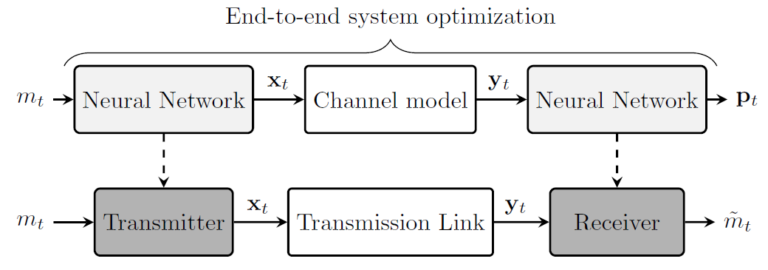Result description
We focused on the end-to-end deep learning application to highly nonlinear short-reach optical fibre links, which are the preferred technology in data centre, metro and access networks. Two different system designs are proposed – a low complexity solution based on a simple feedforward neural network as well as an advanced design using a recurrent neural network for nonlinear processing of data sequences. These configurations are successfully verified in first-in-field breakthrough experiments. Compared to systems based on state-of-the-art digital signal processing, they can increase the reach or enhance the data rate at shorter distances, while operating with a lower computational complexity. We developed optimisation algorithms for robustness to link variations and system self-learning during transmission to enable the implementation of efficient, easily reconfigurable, and versatile transceivers that exploit the potential of the optical fibre to the best possible extent. These key features in keeping operational costs low can establish the technology as a prime candidate for deployment in future optical networks.
Addressing target audiences and expressing needs
- Use of research Infrastructure
- Collaboration
- Research and Technology Organisations
- Academia/ Universities
Result submitted to Horizon Results Platform by NOKIA SOLUTIONS AND NETWORKS GMBH &CO KG

